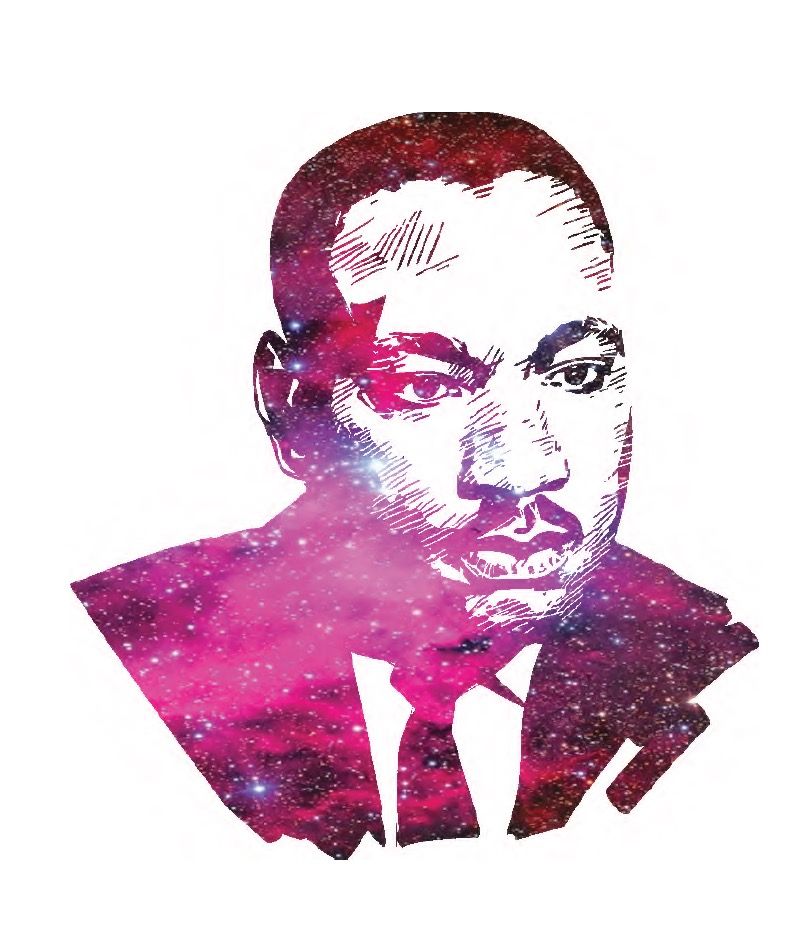WAMUWI MBAO
Struggle Sounds
I learned about biography from Billy Joel. We Didn’t Start the Fire is the perfect twentieth-century western memoir, if you consider memoir to be an exercise of sense-making. The song is a biography for the baby-boomer generation, a collapsing palimpsest of a text. It signals to a hundred other lives, myriad other texts. It responds to the modernist dictum that words don’t quite get at the full story, that more is needed. It is a song where each listen invites you to contemplate a new detail. Chubby Checker. PSYCHO. Belgians in the Congo (a shouted line).
This song came to mind when I was reading Jay Gainz’s Struggle Songs, an unusual and aggressively vivid work of multimodality.

Struggle Songs is as much about its form as is it about its content. It feels like an attempt to radically reimagine what a book might look like, and how a book might behave, in the age of information. Using various songs – prog rock, power ballad, struggle song, and pop all feature – placed at key intervals through the text, Struggle Songs provokes a conversation about the book as a form of technology. It is a startlingly communicative work, where prose and music meet to form an improvised narrative: improvised because it relies on the associative memory of the reader to connect sound and words in order to create mood.
There is no reason why books shouldn’t be multi-modal. We dote on the book because it has been an established form for longer than anyone alive today has been able to read, we’re accustomed to it appearing in a particular format. Thus trained, book fetishists in their piety will insist that nothing comes close to the experience of an actual paper book, a fantastically successful fiction that slanders ebooks as literary mongrelism, and their adherents as not belonging to the ancient reverential order of the Reader. But if we accept that literature is meant to be a democratizing thing, then perhaps there is something to be said for the digital book, and for what it allows.

For one thing, since very few people read in isolation chambers, most readers are probably supplying the background noise themselves. And noise plays a role in how you receive the information you’re reading.
Reading is after all an abstract experience, shaped by the interplay of text and environment in ways that transcend modalities. A soundtracked novel is an invitation to process more information than just the narrative voice in your head, an invitation to creative humanistic exchange. Many of the meaningful aspects of the telling are rendered undiscernible to the reader, and creating a playlist is a useful way of bridging that incommensurable divide between author and reader, infusing and enriching the latter’s understanding of what they are reading.
This is, of course, despite the fact that music works against definition and the tight grasp of those who want to make it mean anything. How I understand Pink Floyd’s Wish You Were Here is different from how someone else will interpret it, and so what associative memories will be triggered in the reading process is subject to excess. Happily, literature is conducive to excess. It relies upon it. And so the conceptual looseness becomes part of the story, suffusing the story with a degree of haziness that frustrates close scrutiny.

Struggle Songs is a compellingly scuzzy page-turner that immerses the reader in the life story of a hapless adventurer whose parents are anti-apartheid exiles. A biography wearing the clothes of a novel, it proceeds through a number of twisting narrative strands that loop and knot in antic ways, from South Africa to Zimbabwe to America and back to Zimbabwe, with many stops inbetween. Why the title? We are given a useful definition of the struggle song at the beginning of the book: “a tool to rally people to its cause, keep up morale, or mourn those who have fallen or have been arrested.”
The protagonist and his friends, the scions of struggle heroes, struggle veterans, and others who helped consign Rhodesia to the history books, are witnesses to what he describes as “struggle schizophrenia, wherein what takes place behind the scenes is often diametrically the opposite of professed values and goals of said movement.” This is a helpful key to interpreting what happens over the course of the sprawling story, which consists of numerous loosely chronological episodes featuring Bill Clinton, Muammar Gadhafi, Brenda Fassie, Christian Slater and others in what is a strange but credible cast.

Jay is the laconic everyman, whose wry and often bemused narration and general insouciance always places him in his own head even when in the company of others. He takes in the arbitrary and not-so-arbitrary depredations of the postcolony. Zimbabwe in the tense uncertainties of land redistribution, and the rise of Jacob Zuma are all brought into a febrile hallucinatory narrative sutured together by the music. It is at once intimate and nihilistic in its portrayal of the postcolonial throes, the ‘struggle schizophrenia’. In this regard, the book’s singular logic is apparent but ungraspable: everything seems to mean something, and nothing seems too important. But where does that leave the reader?
There are, thankfully, moments of tribute and tenderness – Vusumzi Make, sometime partner of Maya Angelou who died forgotten in a Pretoria hospice in 2006, makes a cameo appearance as one of the many comrades who form an extended family by way of their participation in The Struggle. But in the end, daisy-chaining the various figures who pop up in the story is not the optimal way to make sense of it. Much of the storyline is densely impenetrable thicket. The book’s emotional temperature is violently inconstant. Jay fluctuates between abstraction and existentialist dispersal in a way that seems redolent of the eighties of John Hughes – the filmic comparison is deliberate. The scenes melt into each other in a way that is at first hypnotic in its effects, then disorienting. This is not a book for reading in sustained stints.

The book is a site of richness and multiple textures, with Gainz sketching images of moments in the historical archive that seem in danger of slipping away. His sketch of Zimbabwe as a country overcast by the ghosts of Rhodesia is compelling, but he dips into sentiment while avoiding the heavy-handed moralizing that tends to cling to depictions of Zimbabwe as promise-first-and-then-damnation. The moral drama of South Africa as a country slipping into awareness of its estrangement and betrayal is also unfolded in a way that defies easy explanation.
At a time when memory and selfhood are increasingly being reconfigured as commodities, I appreciated how Struggle Songs bathes itself in the untidiness of memory. The reading experience is unusual. Depending on how slowly or quickly you read, a song might carry on past a chapter and into another section like a resonance. Or you might linger over a page or two, and find that the attendant song comes to an end before you reach the end of the section. It is conceptual art you can take home.

You could, if you chose to, even recreate the playlist via Spotify or some other application, although that would produce a markedly different reading experience compared to the idiosyncratic MIDI versions embedded in the book.
We’re dealing here with questions of how music or sound might alter prose, and what prose might draw out of music. What is produced in the clasp of word and sound is a work that provides a potent genre for thinking about the historical afterlife of colonial Southern Africa within registers of intimacy and sharing. Struggle Songs limns the connections between the old orders and their successors, in what is ultimately an illuminatingly provocative thought experiment.

Afterwords: An Index of thought.
White Rhodesians, some of whom became White Zimbabweans and some of whom did not, are not the same as white South Africans. Each of the outposts of white supremacism that blighted the mid-to late twentieth century had its own variation on a theme. When you watch Ian Smith giving a speech, it is strange to think that the hallucination that was Southern Rhodesia existed not too distantly from our own time. They possessed peculiar aspirations, desires for a utopia you would never have to leave. Their aspirations took little account of the gulf that existed between the world that was coming, and the world they wanted to preserve. Their attitude was a confrontational one, that claimed to love Africa while looking on its people with undisguised hostility.
Are struggle songs a genre that aspires towards collective intimacy? The obvious answer is yes. Weaponized intimacy? When directed outwards, certainly. They are a narrative about collective experience, a form of telling that invites others to share familiarity and comfort.
Bruce Springsteen played a concert at the National Sports Stadium in Harare, in 1988. The first song he played was a cover of Bob Marley &The Wailers’ Get Up, Stand Up.
This book will not please everyone, nor should it.
This song opens the book proper, and is basically me. Early twenties and forever stumbling across the Sunset Strip. The opening chapter is set on that election night in 2000, at the Viper Room, a club I’d experienced many of the bands of my generation up close and personal. I guess the 90’s well and truly ended for many of my generation with that election, the final nail in the coffin. Serve The Servants in many ways was Kurt Cobain turning his back on the movement he started and this version, with the tablas and djembes propelling it sets the tone for the multicultural protagonists journey to come. Jay Gainz
Zimbabwe (Toni Childs cover) – Toni Childs did this beautiful song in the 80’s and it was a very hopeful song, much like the mood in Zimbabwe was at the time. This is probably the closest I get to the ethos of black midi. I must have layered at least seven of the same tracks over each other to produce this off-kilter version, that’s almost tragic, much like the chapter it’s designed around. One where the protagonist revisits his late dad’s once-magnificent cottage on the shores of Zimbabwe’s largest internal lake. Memories of comrades covertly training for armed struggle and the R&R that accompanied it merged with the magnificence of Great Zimbabwe nearby, juxtaposed with the reality of the desecrated current physical structure of the cottage revisited at the tail-end of the Zimbabwe Land War. Jay Gainz
Weeping (Bright Blue cover) – For me, this song has aged incredibly well and is still very relevant, the description of high walls, the inhabitants behind them maybe more diverse, but as it’s set in a chapter that describes a history of violence from Soweto right through to the Xenophobic riots of 2008, when the protagonist is thrust into a front seat view of Jacob Zuma’s final ascent from ANC President to that of the Republic. I hope Dan Heyman doesn’t murder me for butchering his masterpiece, but as mentioned it’s an incredibly relevant song, and if I don’t get sued for what I’ve done with it here, would love to get one of my DJ pals to do a kickass remix. Who knows, it might add to the soundtrack of a likely coming revolution once again! Jay Gainz